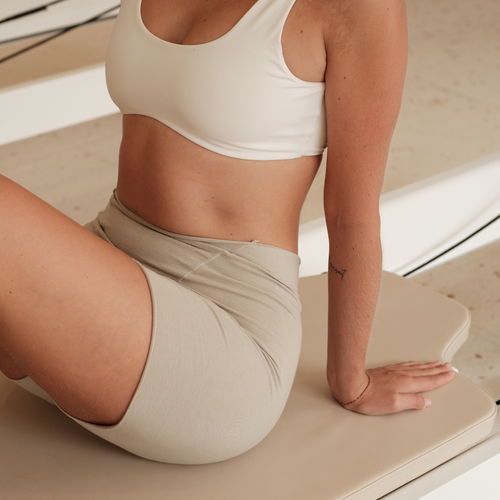A Nutritionist's Guide To Improving Your Gut Health In 2025

We are excited to share this comprehensive guide to better gut health by Kristen Stavridis, a qualified nutritionist. As you may know by know your gut is at the heart of your health, which is why we want to kick start 2025 with some easy to introduce daily habits that you can incorporate into your new year. Remember, it is these consistent habits that your gut will thank you for and leave you feeling the best version of yourself!
Follow @nutritionistkristen for more every day gut health tips!
What Is The Buzz Around Gut Health?
We are hearing the term “gut health” around a lot in recent years, but why all the fuss?
Well, our gut health has a huge role to play in not only our digestive health but also impacts how well our immune system functions, has a role in what cravings we have, our mental health, sleep quality and much more. A healthy gut can also contribute to a better quality of life and reduce our risk for a number of diseases too.
If you do a simple search on social media for “how to improve your gut health” you will be met with a whirlwind of conflicting advice, fad diets, expensive pills, which are mixed in with good quality scientific data, and it can make starting your gut health journey very confusing (and potentially expensive!). So, I have instead laid out all the must-know information below and my top evidenced based hacks for improving your gut health this year.
1. Variety is the spice of life - and gut health!
We have over 100 trillion cells of bacteria within our gut and if we want better gut health, then keeping them happy and healthy is important. One of the best ways to do this is by eating as much variety as we can of different fruits, vegetables, nuts, seeds, legumes, pulses and whole grains. A large study called the American Gut Project showed that those who ate around 30 different plants a week had significantly better gut health than those who ate 10 or fewer (i).
2. Fibre is your friend
Fibre is a carbohydrate found in plants that supports moving of waste products through the digestive system and provides “food” for our good gut bugs. Without fibre, we would be extremely constipated, struggle with a lot of inflammation and our gut microbiome would suffer big time. It is recommended to get 30g of fibre in for optimal gut health. One thing I always remind clients to do when increasing fibre intake is to boost water consumption at the same time, as this will help to prevent getting a little backed up. To boost fibre content of your diet, think of leaving skins on fruit and vegetables, switching regular bread to wholegrain, adding more seeds and nuts to things like yoghurt or oats in the morning, and upping your fruit and veg intake. There are days where you may find hitting your 30g tricky, so I recommend Biomel’s Complete Gut powder which you can add to drinks, oats or yoghurt pots for example!
3. Lowering stress is best
Prolonged periods of high stress have been shown to negatively affect digestion, contribute to leaky gut, increase inflammation, disrupt gut balance and more. Managing your stress by having good sleep hygiene, practicing breath work, reducing high doses of caffeine intake and just slowing down the pace of our lives are all helpful steps.
4. Ultra processed foods
When we talk about ultra processed foods, we mean any food that has been significantly changed from its original state and one you wouldn’t really find growing out of the ground, for example. Think of things like takeaway foods, pre-packaged sandwiches, confectionery, fizzy drinks, fast foods, ready meals etc. The reason why these should be avoided is that many contain things like preservatives, artificial colourings higher levels of added sugars and salt, and many other ingredients that are not good for our health when eaten regularly.
5. Lower alcohol intake
Alcohol can have a negative impact on our gut health because it dehydrates us, can lead to reductions in presence of beneficial gut bacteria, can cause inflammation, impact our cravings for more unhealthy processed foods, and worsen conditions like acid reflux and IBS. If you are drinking, switch out every second alcoholic drink for a non-alcoholic version, and stay well hydrated before and after.
6. Eat more pre and probiotic foods
A probiotic food is one with beneficial live cultures that can contribute to better gut health, whereas a prebiotic has fibre that feeds the already existing beneficial bacteria in our gut. Examples of probiotic-containing foods are things like Greek yoghurt, sauerkraut, sourdough, kefir and miso, but also things like Biomel’s Gut Health Shots which contain billions of beneficial live cultures and make supporting your gut health easier. To boost prebiotics in your diet, eat more foods like bananas, leeks, oats and pomegranates.
*At Biomel, your well-being is our top priority. While we take great pride in our expertise in gut health and overall wellness, we understand that every gut is unique. The content we provide is not meant to diagnose, treat, cure, or prevent any illness, or replace the advice of your GP. We strongly encourage you to consult with a healthcare professional if you have any health concerns. Rest assured, we are here to support you throughout your journey, so you are never alone. Our in-house nutritionists will always be here to support you on your journey to optimal gut health.
Trusted Sources
i. McDonald D, Hyde E, Debelius J.W et al. American gut: an open platform for citizen science microbiome research. mSystems 2018; 3(3):e00031-00018. https://journals.asm.org/doi/10.1128/msystems.00031-18


